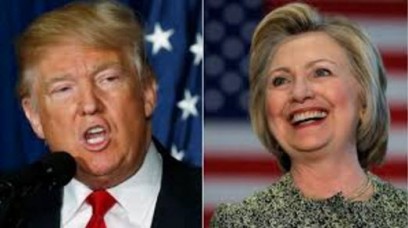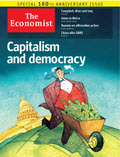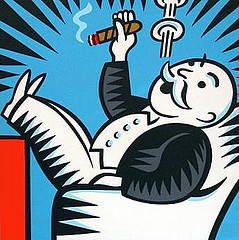
Boomers are confused and angry. Millennials are angry. Younger folks are pretty much living their lives as young folks always have, but they aren’t happy. So what’s going on in the US and in the world today? Can it be fixed? I’m going to ramble a bit here…
I have a retired history teacher friend who constantly amazes me with bits of history that I didn’t know. I took the required history courses in school, of course, but (a) they are all taught from the state’s point of view and (b) we didn’t get told the whole story. History, as it was taught to me anyway, wasn’t very interesting, and that’s a problem. Reading, writing, STEM classes, athletics, and the arts are all important. We aren’t ‘human’ without all of them.
Still… as George Santayana (among others) said, “Those who cannot remember the past are condemned to repeat it.” And Kurt Vonnegut, who I love dearly, responded in Bluebeard: “We’re doomed to repeat the past no matter what. That’s what it is to be alive. It’s pretty dense kids who haven’t figured that out by the time they’re ten…. Most kids can’t afford to go to Harvard and be misinformed.” While Vonnegut’s rant is a bit harsh (that’s his style), he makes a good point. Kids do figure out that situations repeat and they adapt to the world. The more situations we are exposed to, the richer our experience of the world and our ability to predict how a new situation will play out. And that’s one reason why a lot of travel before age 30, say, is such a good thing.
Ok. The US political system has pretty much been a two party system from its inception. The names of the parties may change, but there are two major political parties. More than that is a problem. Yes, we have fringe parties and candidates now and then, but they have no chance of being elected. They can only take votes away from the two main parties. That’s history, folks. So the line you’ve heard about “throwing your vote away” is, unfortunately, true regarding third party candidates.
Personally, I like Bernie Sanders. I like him; I trust him; I like what he stands for; I like his solid record of standing on his principles. But Bernie will not be one of the two candidates the major parties put forward. On the Republican side we see a what appears to be a buffoon named Trump whose claim to fame is manipulating people into investing in commercial schemes, draining cash for his own gain, and then taking the companies bankrupt, transferring his investors’ cash to his own pocket as well as cheating his employees and vendors. The man has exhibited bigotry, misogyny, and dishonesty in so many ways it is a wonder how any American can take him seriously. I do not understand his appeal. On the Democratic side we have an experienced female candidate, Hillary Clinton, who has demonstrated a career-long commitment to improving the lot of all people, particularly women and children. Unfortunately, anyone who has been in the public eye for a long time will have a history which can be twisted and spun to the opposition’s advantage. That’s politics. It amazes me that Hillary’s peccadillos are shouted louder than Trump’s perversities.
Anti-intellectualism has been a constant thread winding its way through our political and cultural life, nurtured by the false notion that democracy means that “my ignorance is just as good as your knowledge.” —Isaac Asimov
Isaac Asimov was a Russian immigrant to the US when he was three years old, so he was effectively as American, culturally, as any of us. He grew up seeing our foibles and our strengths. His writings thoroughly demonstrate his observations about human nature as seen in the USA. His quote, above, describes the Trump supporters as I observe them. Ignorance is always scary because it encourages people to do things which others (with more experience and/or education) know will lead to no good.
The only thing which encourages me to believe we’ll pull through this election is an observation by Winston Churchill that “You can always count on Americans to do the right thing – after they’ve tried everything else.” I hope to God that we’ll do the right thing this time. On the other hand, Britain is a bit crazy now, as is much of the world. How did we all wind up where we are today?
It seems to me that, after World War II, the world pulled together to rebuild the developed countries. The United Nations, the Marshall Plan, and scientific progress throughout the world were all pulling together to make a more productive, peaceful, and better life for humanity. Nothing is perfect and not everybody benefited equally from progress, but as a whole things went well for many years. Then we get to the more recent years when the US pursued military objectives in the Middle East leading to huge economic deficits at home, hatred and revenge by the persecuted population of the Middle East, and an overall downward trend in the quality of life in the US. Bill Clinton pulled the US out of a huge deficit and possibly Hillary Clinton might finish the job Obama started to right our economy from the $1.4 trillion George W. Bush deficit. Obama reduced the deficit by over $1 trillion. That’s pretty amazing since he was saddled with an opposition controlled Congress which refused to address the country’s economic and social issues. History, by the way, demonstrates that the US stock market (and the economy in general) does better under Democratic administrations than under Republican administrations. A rising tide really does lift all boats.
While I am not a deeply religious person, I was raised as a Catholic and understand something of the Bible and Christianity. I cannot help noticing that all the world’s great religions share common themes of “treat others the way you would like to be treated” and “help those who need help.” Not only do the great religions share those principles, in times when and where those principles prevail, everybody (yes, everybody) seems to have a better life. There is a reason these principles have been promulgated for thousands of years: they work to the best advantage of the largest number of people.
I have to make a politically incorrect statement now. When I look for reasons why things have fallen apart in more recent years, I look at the difference between how the boomers were raised and how more recent generations are being raised. If mom has to work to provide enough money for the family to survive, mom is not at home raising the children and transmitting cultural values to those children. The cultural values being pushed in recent times have been the violence and intolerance of movies, TV, and video games. We humans are very visual animals, so these are powerful transmission vehicles.
So I blame a rising cost of living, rising expectations to own technology, and salaries that do not keep pace with those costs. I blame CEOs who for decades have hired consultants to justify boosting their compensation packages. Now CEOs are paid obscene amounts of money. The middle class of the 50’s, 60’s and 70’s has disappeared. Mom has to work. Kids do not receive the guidance and attention that earlier generations received from their families. But kids do learn. Now kids learn from commercial sources with a profit motivation. There is no effort to instill moral and ethical values on the cable networks. Heck, you don’t even find a fair treatment of world news in today’s media. Intolerance is presented as a religious value and it goes downhill from there. If you read people’s thoughts online, which I do occasionally to see what’s in the public marketplace of ideas, you will also see the follow up comments from people who read those thoughts. Some of those comments are thoughtful and reasoned. Some are angry, illogical, and come from a different planet than I have known.
The US would appear to need another Democratic administration. Therefore, I’m voting for Hillary. No US elected official is chosen without the support of the people who control and manipulate our economic system. The Koch Brothers’ Tea Party cost them a lot, but it is pretty much dead at this point. (Isn’t it? It’s so hard to tell what’s really going on.) The Tea Party’s influence continues among those most susceptible to its claims and stories. That influence seems to have delivered people to Donald Trump. How and why any woman or any halfway intelligent person would support Trump is a complete mystery to me. I don’t understand what possible appeal he has to anyone who knows anything about his history. He may belong behind bars, but surely not running for president of the United States.
I wish Hillary were more likeable. I will vote for her and I believe she will do a good job. I just don’t have warm and fuzzy feelings about her. I’m a bit suspicious of her relationship with Wall Street but hope for the best. We shall see.










